To think of Penghu as an island off Taiwan is to get it the wrong way around. Because of its location in the middle of the Taiwan Strait, the islands of the archipelago have been a first and favorite destination for invading navies since the 17th century. Nowadays, though, it's a favorite destination for tourists -- and with good reason.
Makung, Baisha & Hsiyu
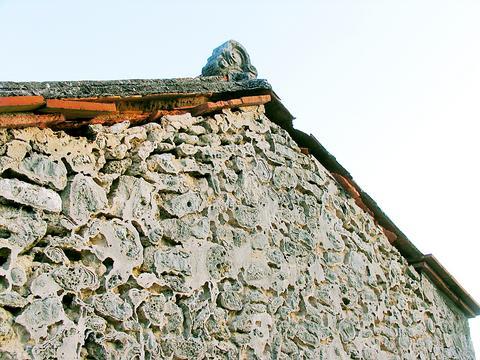
These three islands are the largest of the Penghu archipelago. A string of bridges completed in late 1970 has essentially turned the three islands into one large island. Makung is the largest of the three and is also the location of Makung City, the administrative center of the Penghu island group. While there are plenty of things to do and see in the city itself, it seems a pity to travel to an island only to spend time in a city. Best, then, to rent a scooter at the airport and set out for any of the islands' numerous beaches. There are several on Makung itself -- Shanshui, Aimen, Shili, and others -- but the best is at Neian, a 30km drive to the western side of Hsiyu.
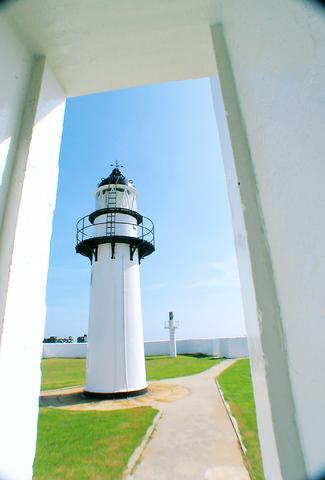
Heading out to Hsiyu is a good idea for several reasons. As well as the beach, visitors can take in the lighthouse standing sentry on the western cliffs. It can be seen from 46.3km away and sits next to one of many military installations throughout Penghu that are off limits -- most of them at least.
Near the lighthouse is the famous Hsiyu Fortress. Built in 1884 to defend Penghu against the French, it is 7.2 hectares of poured reinforced cement tunnels that once housed four, huge British Armstrong canons. The site stands as a silent reminder of Penghu's tumultuous history.
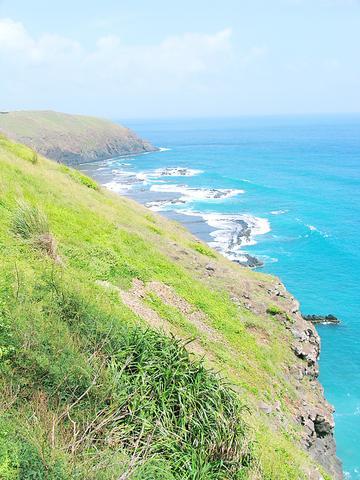
Wangan
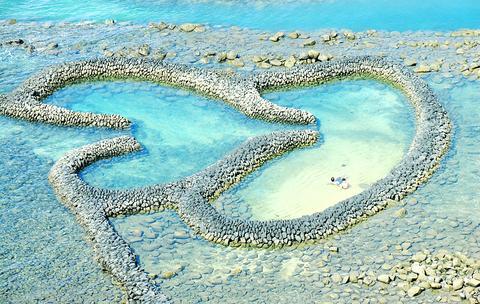
The island of Wangan is home to Chungshe (中社), one of Taiwan's most precious cultural properties -- at least according to the American Express Foundation, which put the centuries-old village on its World Monuments Watch list of the 100 most-endangered sites.
The village was established about 300 years ago by Han Chinese who were encouraged by the imperial authorities to guard against invasion by Japanese and European forces. The homes built by those first settlers have long since disappeared, but many of the 151 remaining courtyard homes date back 200 years.
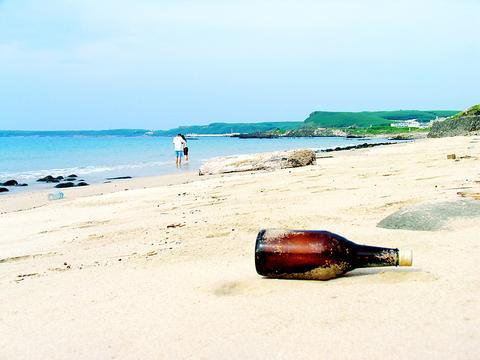
With the exception of three modern houses, all the structures have maintained their traditional aesthetic. The corrugated sheet metal covering the roofs of most buildings in Taiwan isn't found here. Many of the homes still use traditional cooking stoves. Water is still drawn from public wells. And each of the few remaining residents still makes a living from fishing and farming.
Chungshe suffered a mass exodus in 1971, when the government began providing semi-regular boat services to the island. At present, there are only some 240 residents left.
And it would seem none of them are beachcombers. Wangan's other obvious asset is its beach, located at the southern end of the island. When the Taipei Times last stepped foot on Wangan, they left behind the only footprints the stretch of pristine golden sand had seen in weeks, according to locals. They seemed mystified that anyone would use the beach for something other than fishing.
The only other beach on Wangan isn't for swimming. It's where giant sea turtles come each year to lay their eggs. It's also the site of a sea turtle protection center-cum-museum. The museum was built to satisfy the curiosity of thousands of visitors who came each year to watch the sea turtles lay their eggs, then came again when the eggs hatched and the tiny turtles made their way into the ocean. It served another, more important, function as well: Keeping the visitors off the beach and away from the endangered turtles.
CHIMEI
This island has a history of women drowning themselves because of men, according to local folklore. Two of the island's most famous tourist attractions are the Tomb of the Seven Beauties (七美人塚) and Wangfu Rock.
The island gets its name from the first of these sites. Legend has it that Japanese invaders came upon this island at the beginning of the Ming Dynasty. Seven young women were washing clothes at a well when they heard the news and, in order to protect their virtue and avoid being harassed by the invaders, they each leapt into the well. The locals filled it in to create a tomb for the women and, later, seven Spring Catalpa trees grew there. The trees are said to maintain their yellow and white flowers year-round.
Over the hill from the tomb is a rock stretched out across the water called Wangfu or "wanting husband" rock (望夫石). The story here is of a young pregnant woman whose husband went to sea and never returned. Months went by. Fearing she'd never be able to raise her child by herself, the desperate woman threw herself in the ocean. But (Oh, my God!) a rock later came out of the ocean that looked just like the pregnant woman!
When the tour bus next takes you to another rock which you're told looks like a lion (it doesn't), you realize you're being hoodwinked by a lot of hokum designed to give the island a meager tourist industry. Without these stories of stones, sorry to say, Chimei is just a rock. No one would want to come here were otherwise.
One last stone to observe on Chimei, though, is one of Penghu's most recognizable sites. The Twin-Heart Fish Trap (雙心石扈) sits at the bottom of a cliff on the island's northern side. Locals don't know when it was built or by whom, but they owe their livelihoods to it. For as long as anyone can remember, it has caught fish and lured young couples who have their photo taken standing above it and often get in to take a swim.
With 64 islands in the archipelago, Penghu has a lot more to offer than what's to be found on the few islands mentioned here. Best, then, to get on the Web and plan ahead before setting out to conquer the islands for yourself.
For more information:
▲WHAT: Penghu is a 64-island archipelago located halfway between Taiwan and China in the Taiwan Strait. Makung is the largest island, followed by Hsiyu, Baisha, Wangan and Chimei. Total land area is 127km2.
▲ POPULATION: About 60,000
▲ CLIMATE: Windy in the winter; hot in the summer. Penghu receives the least amount of rainfall of all of Taiwan's islands and the most sun.
▲ WHAT TO BRING: Clothing to protect from the sun and seasickness pills, if necessary.
ACCOMODATIONS:
On Makung:
Pauhua Hotel (06) 927-4881
Fungjuo Hotel (06) 927-3801
Erhsin Hotel (06) 927-8170
On Chimei:
Shuntien Hostel (06) 997-1024
Fupeng Hostel (06) 997-1043
On Wangan:
Wangan Hostel (06) 999-1200
AIRLINES:
Uni Air (06) 921-6350
Far Eastern Air (06) 924-9388
Mandarin Air (06) 921-6966
Fuhsing Air (06) 921-8500
On the Web:
http://www.phhg.gov.tw/english/intro/intro.htm
http://www.wmf.org/html/programs/watchlist2004.html

On the evening of June 1, Control Yuan Secretary-General Lee Chun-yi (李俊俋) apologized and resigned in disgrace. His crime was instructing his driver to use a Control Yuan vehicle to transport his dog to a pet grooming salon. The Control Yuan is the government branch that investigates, audits and impeaches government officials for, among other things, misuse of government funds, so his misuse of a government vehicle was highly inappropriate. If this story were told to anyone living in the golden era of swaggering gangsters, flashy nouveau riche businessmen, and corrupt “black gold” politics of the 1980s and 1990s, they would have laughed.

This is a deeply unsettling period in Taiwan. Uncertainties are everywhere while everyone waits for a small army of other shoes to drop on nearly every front. During challenging times, interesting political changes can happen, yet all three major political parties are beset with scandals, strife and self-inflicted wounds. As the ruling party, the Democratic Progressive Party (DPP) is held accountable for not only the challenges to the party, but also the nation. Taiwan is geopolitically and economically under threat. Domestically, the administration is under siege by the opposition-controlled legislature and growing discontent with what opponents characterize as arrogant, autocratic

When Lisa, 20, laces into her ultra-high heels for her shift at a strip club in Ukraine’s Kharkiv, she knows that aside from dancing, she will have to comfort traumatized soldiers. Since Russia’s 2022 invasion, exhausted troops are the main clientele of the Flash Dancers club in the center of the northeastern city, just 20 kilometers from Russian forces. For some customers, it provides an “escape” from the war, said Valerya Zavatska — a 25-year-old law graduate who runs the club with her mother, an ex-dancer. But many are not there just for the show. They “want to talk about what hurts,” she

June 16 to June 22 The following flyer appeared on the streets of Hsinchu on June 12, 1895: “Taipei has already fallen to the Japanese barbarians, who have brought great misery to our land and people. We heard that the Japanese occupiers will tax our gardens, our houses, our bodies, and even our chickens, dogs, cows and pigs. They wear their hair wild, carve their teeth, tattoo their foreheads, wear strange clothes and speak a strange language. How can we be ruled by such people?” Posted by civilian militia leader Wu Tang-hsing (吳湯興), it was a call to arms to retake